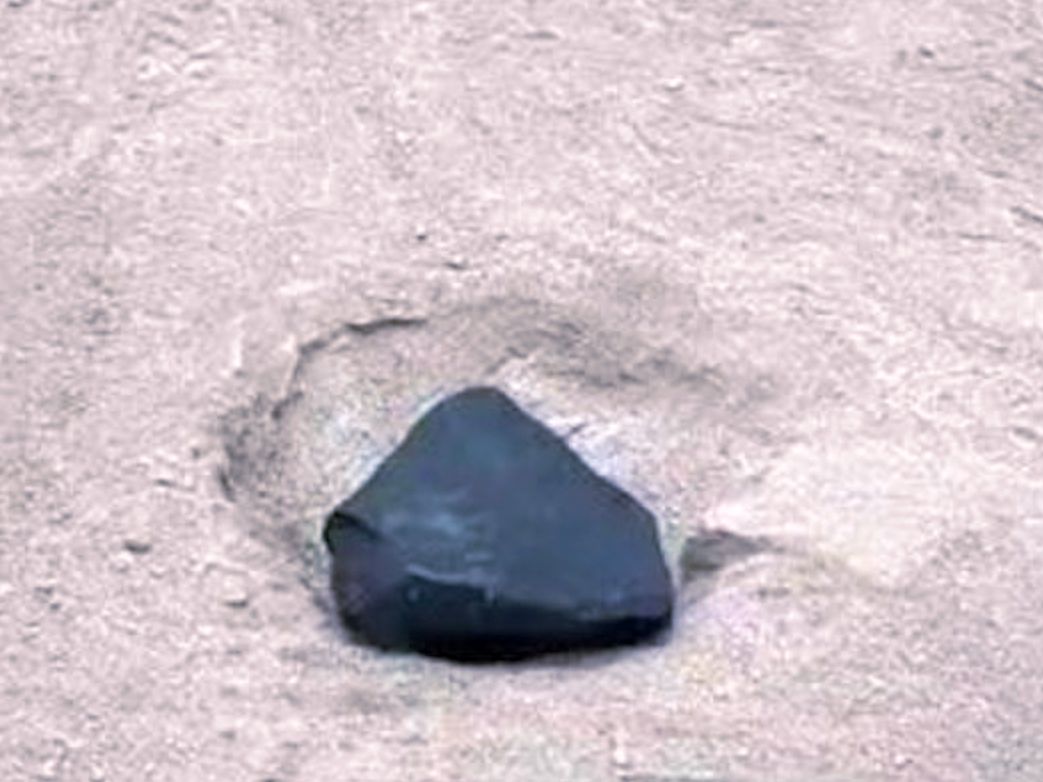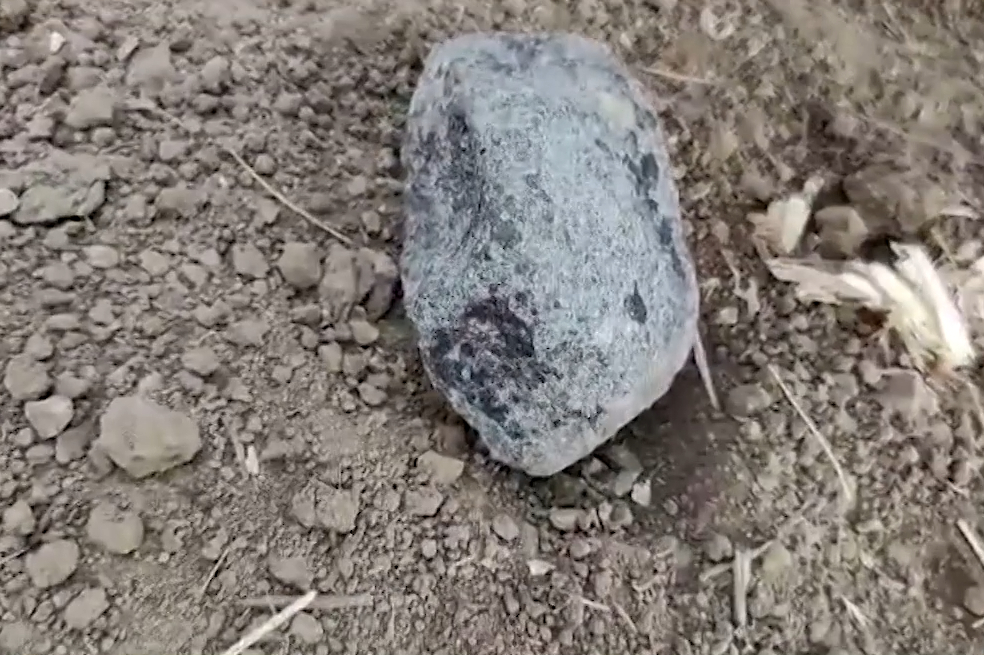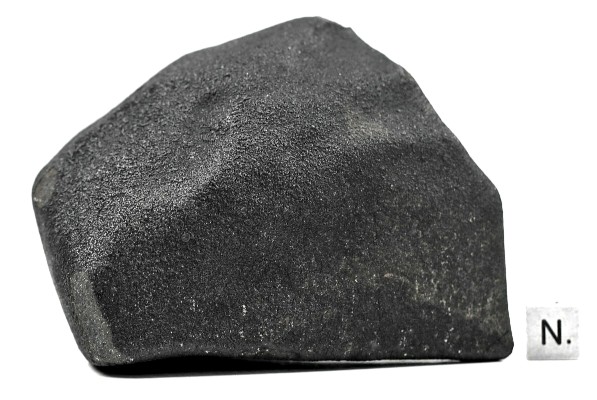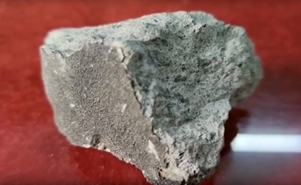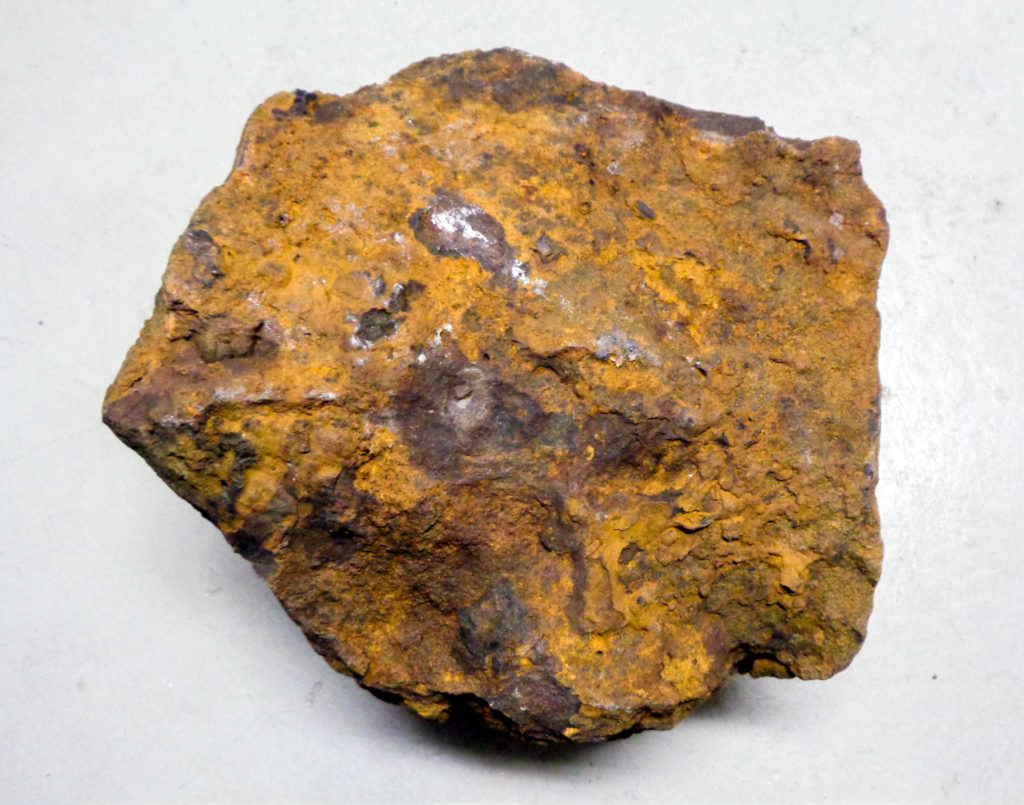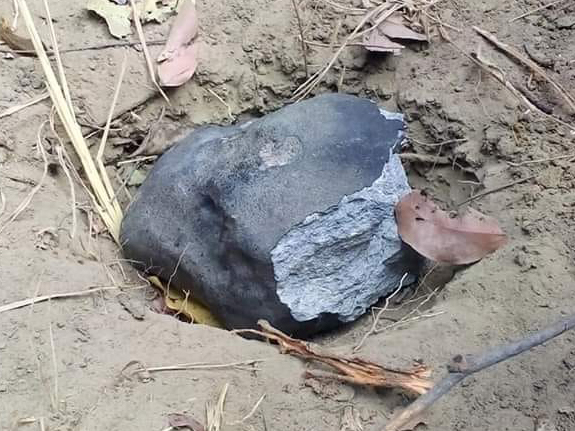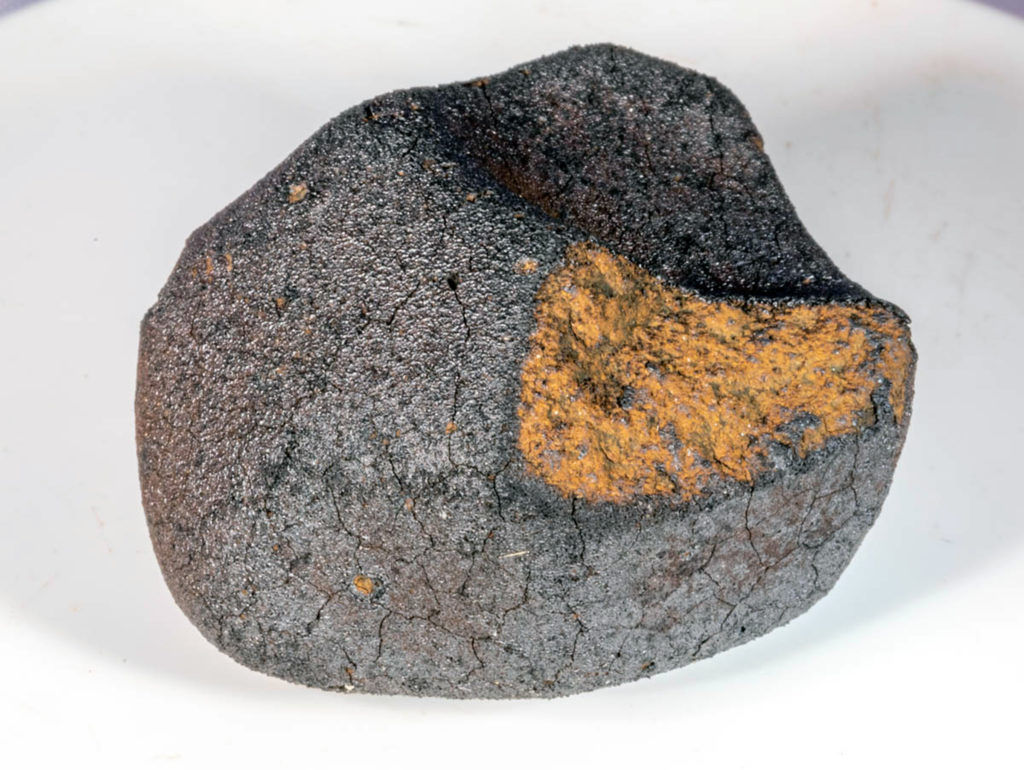The petrochemical constraint and cosmogenic records of Mahadeva (H5/6) chondrite: a new fall in India
Dipak K. Panda, Dwijesh Ray, Anil D. Shukla
Planetary and Space Science
In press, journal pre-proof, Available online 6 October 2020
“Highlights
- Mahadeva Meteorite fell as a new single piece on July 22, 2019 in Madhubani District Bihar, India
- Petrochemical investigation suggests Mahadeva is an ordinary highly equilibrated condrite of petrological type 5/6.
- The temperature of equilibration estimated to be ∼800°C.
- Cosmogenic radio nuclides activity is consistent with its production.”
“A single piece of meteorite (∼15 kg) fell on Mahadeva village of Madhubani district in the state of Bihar in India on July 22, 2019. Based on petrochemical studies, Mahadeva is classified as H-chondrite. Homogeneous olivine (Fa:19.3 mol%) (percent mean deviation <4%) and low-Ca pyroxene (Fs:17.6 mol%) composition further suggest that Mahadeva is highly equilibrated chondrite (resembles petrologic type 5/6), a few relict chondrules still can be recognised. The temperature of equilibration is estimated ∼800°C with evidences of moderate shock metamorphism (S2-3, Stöffler et al., 1991). Bulk chemical composition is also consistent with the mean H-chondrite. The cosmogenic radionuclides activities are found to be consistent and match with the production rate and solar cycle activity.”

